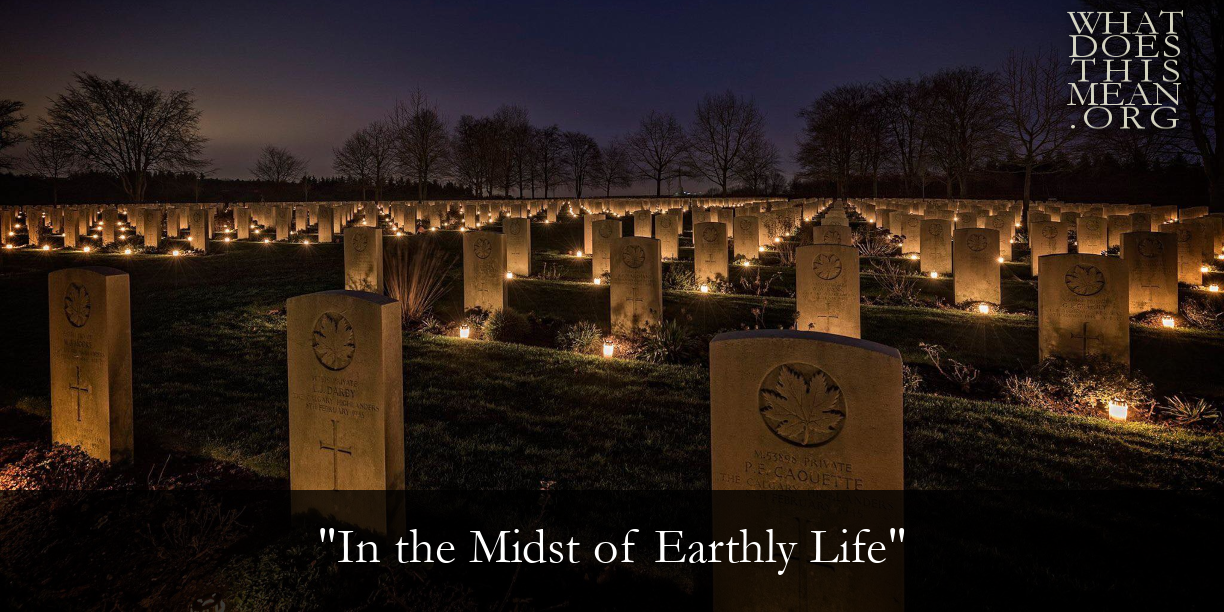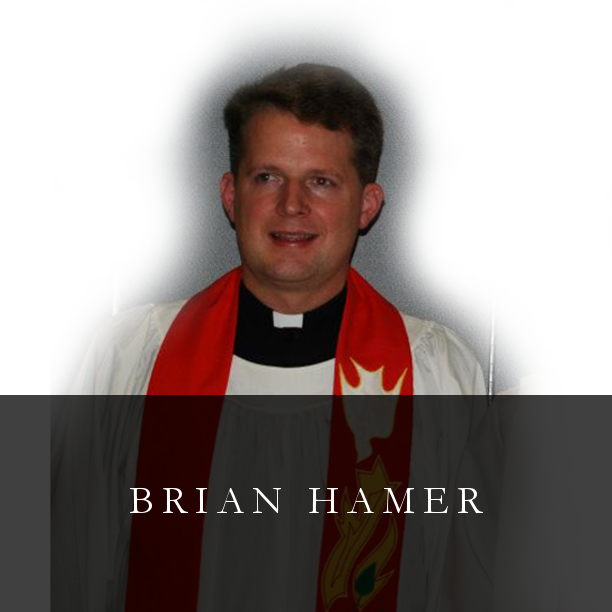For thou hast possessed my reins: thou hast covered me in my mother's womb.
I will praise thee; for I am fearfully and wonderfully made:
marvelous are thy works; and that my soul knoweth right well.
My substance was not hid from thee, when I was made in secret,
and curiously wrought in the lowest parts of the earth.
Thine eyes did see my substance, yet being unperfect;
and in thy book all my members were written, which in continuance were fashioned, when as yet there was none of them.
How precious also are thy thoughts unto me, O God! how great is the sum of them!
If I should count them, they are more in number than the sand:
when I awake, I am still with Thee.
The Venerable Bede (672/673–735), one of the great poets of the Middle Ages, took up this theme in a day when folks were surrounded by death with greater severity and frequency than most of us will ever know. See how the text progresses from law to gospel, from death to life, and from despair to hope. The first phrase of each stanza is repeated as an antiphon at the end of each stanza, lending thematic unity to text. The composer, Bertram Luard-Selby (1853–1918), has succeeded in lending a sense of pathos and angst to the text, but not without a sense of hope, especially via the dance motifs in the instruments.
A voice from Ramah was there sent,
A voice of weeping and lament:
When Rachel mourned the children’s sword,
Whom for the tyrant’s sword she bore.
Who having tasted earthly woe
Eternal triumph now they know:
For whom the cruel torments rent
A voice from Ramah was there sent.
Fear not, O little flock and blest,
The lion that your life oppressed!
To heavenly pastures ever new
The heav’nly Shepherd leadeth you;
Who, dwelling now on Sion’s hill
The Lamb’s dear footsteps follow still:
By tyrant there no more distressed,
Fear not, O little flock and blest!
And every tear is wiped away
By your dear Father’s hands for aye;
Death has no pow’r to hurt you more
Whose own is life’s eternal store.
And all who sow in peril weep,
In everlasting joy shall reap:
What time they shine in heavenly day,
And every tear is wiped away.
— Text: The Venerable Bede, alt., cento
In the midst of earthly life
Snares of death surround us;
Who shall help us in the strife
Lest the Foe confound us?
Thou only, Lord, Thou only.
We mourn that we have greatly erred,
That our sins Thy wrath have stirred.
Refrain: Holy and righteous God! Holy and mighty God!
Holy and all-merciful Savior! Eternal Lord God!
Save us lest we perish
In the bitter pangs of death.
Have mercy, O Lord!
In the midst of death's dark vale
Powers of hell o'ertake us.
Who will help when they assail,
Who secure will make us?
Thou only, Lord, Thou only.
Thy heart is moved with tenderness,
Pities us in our distress.
Refrain
In the midst of utter woe
All our sins oppress us,
Where shall we for refuge go,
Where for grace to bless us?
To Thee, Lord Jesus, only.
Thy precious blood was shed to win
Full atonement for our sin.
Refrain
Text: The Lutheran Hymnal 590



 RSS Feed
RSS Feed
